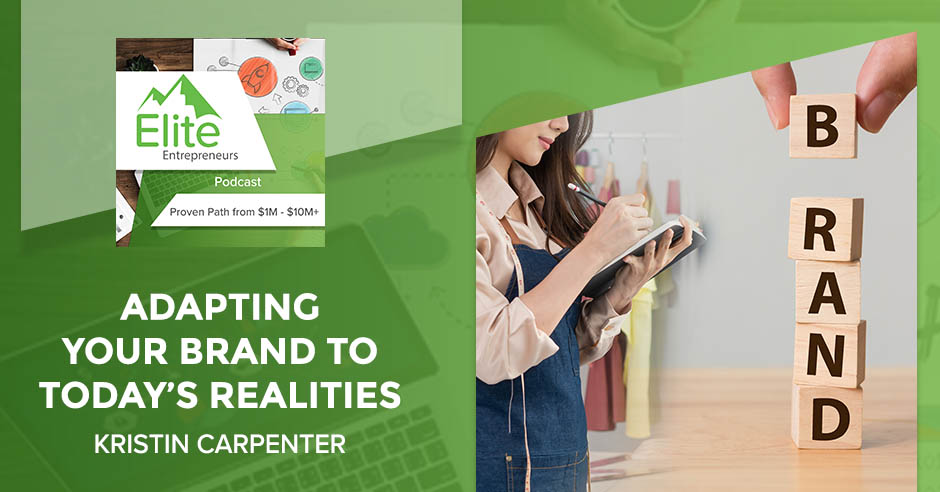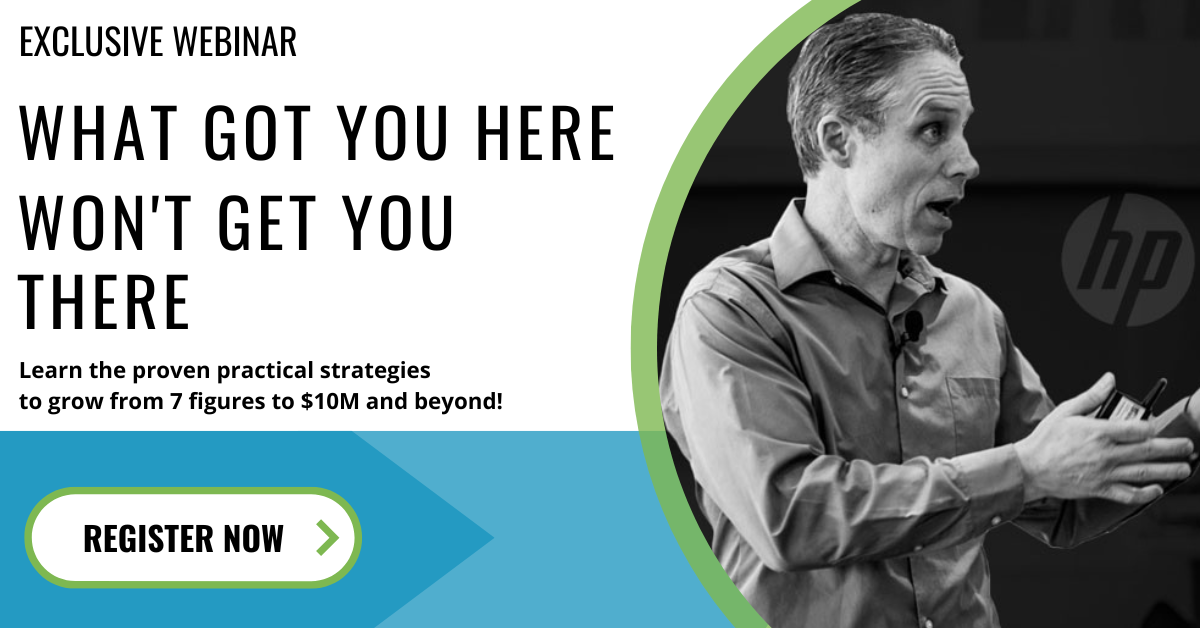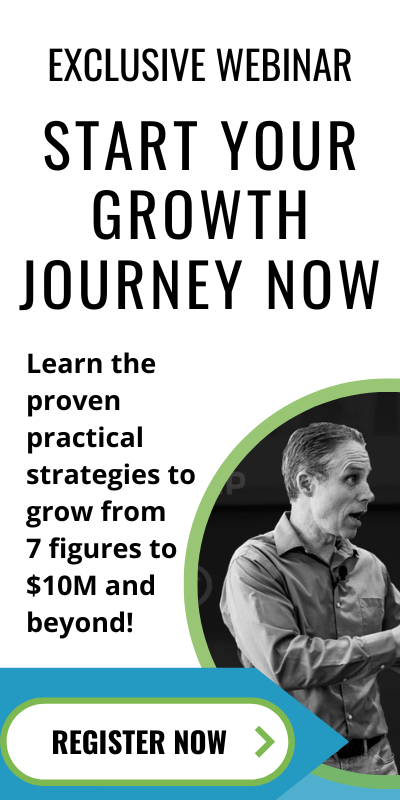Episode 74: Adapting Your Brand to Today’s Realities, with Kristin Carpenter
Kristin Carpenter founded Verde Brand Communications after a decade-long journalism career, working on staff for major consumer lifestyle magazines, business and trade titles. Now 19 years later, she continues to serve as Verde’s CEO and directs strategy for the agency.
Kristin is also host of the Channel Mastery podcast, voted best Outdoor Podcast by SNEWS in 2019. Channel Mastery launched in 2017 and delivers solutions in every weekly episode tailored for specialty business and brand leaders navigating the continual transformation of multi-channel business. Specialty’s competitive set now includes behemoth marketplaces like Amazon, billion-dollar retailers like Target and Walmart, armed with troves of data, Channel Mastery shows specialty business leaders what’s working today to best engage today’s consumer.
In her free time, you can find Kristin chasing her kids around the mountains and desert around her home in Durango, Colo.
In addition to her duties of founder/CEO and Mom, Kristin hosts town halls and keynote speaking engagements.
What You Will Learn:
- How Kristin initially founded Verde Brand Communications with the goal and began specializing in the outdoor recreation market
- How the outbreak of the global pandemic forced everyone to “throw out the playbook” and encouraged them to innovate new solutions
- How Kristin learned to stop over-servicing her clients and recognize the real value of her time and effort as her firm grew
- Why Kristin would tell her younger self to not stress so much over the challenges ahead of her and to know that she will overcome them
- Why learning to delegate responsibility was one of the significant skills Kristin had to develop as a leader to keep her organization growing
- How the global pandemic has impacted online research engagement and conversion and created change in both businesses and in the consumers they serve
- How Kristin and her team are continuously working to update their Mission, Vision, and Values and to implement and streamline their processes
- Why constant outgoing communication between brands and consumers is more important than ever before in the age of pandemic
- Why Kristin believes it is key for a brand to not be too tied to its founder and to stand on its own legs
- How Kristin is focusing on building out her leadership team’s structure to better reflect who Verde is and what they want to be
Resources:
- McKinsey & Company’s “The Quickening” study: https://mck.co/3iM0GHf
- Website: verdepr.com
- Website: channelmastery.com
- LinkedIn: linkedin.com/in/kcarpediem/
- LinkedIn: linkedin.com/company/verde-pr-&-consulting/
- Facebook: facebook.com/kristinthecarpenter
- Twitter: @VerdeBrandComm
Additional Resources:
- Elite Business Health Assessment: https://growwithelite.com/health
- Email: info@GrowWithElite.com
- Website: https://growwithelite.com/
—
Listen to the podcast here
As you know, in every episode, we are bringing guests to you who are going to help you in your seven-figure journey. This episode is no exception. We have somebody who’s not only a seven-figure business owner but has some subject matter expertise that might be of interest to some of you reading. I’m pleased to introduce to you Kristin Carpenter. She’s the Founder and CEO of Verde PR. They’re a PR agency that specializes in outdoor-related products and services. Kristin, I will let you clarify and expand more on your firm, but welcome and thank you for joining us.
It’s awesome to be here. Thank you and hats off to you all for launching the show and getting through 2020 in a stand-up way. I enjoy the show.
I appreciate that. It’s a labor of love. I believe you have a podcast of your own, which you can tell us about, but it’s like those waves that never stop coming in. You always have to keep it going.
At Verde, we turned twenty in 2021.
A big congratulations to you. That’s no small feat for any business, let alone in turbulent environments like 2020. You’re doing it, so that’s fantastic.
I have to say, part of my 2020 was dropping my son off at Montana State, up in Bozeman. I founded the company when I was pregnant with him and he was in a car seat next to me in the basement for the first eighteen months of that and playpen after that. The point being is the kid took 22 flights with me in his first year of life. His baby book is all wings. It was a crazy time, but it was very interesting to bring him to college. He’s a Digital Marketing and Business major, which is cool. I always felt like he was my wingman.
Now the wingman is going off. He is taking flight, which is awesome. This doesn’t have to do with what we usually talk about on this show, but I’m curious to know when he’s done studying digital Marketing, are you hoping to bring them back into your life at some point?
Absolutely. He videos for us. He’s been to every single trade show, except for the European bike show, multiple times. He’s worked events probably since he was 12 or 13. He loves it. These are his people and he loves Bozeman because he’s surrounded by these people and they have a little cottage industry up there of ski, fishing and outdoor. Lots is going on in that little neighborhood, so he’s in a great spot. I would love that. It would be great.
You referenced outdoor events, trade shows and activities. Tell us more about the companies you guys serve and what you do specifically to help them.
I was a journalist for ten years prior to founding Verde. We basically were founded as a PR agency in media relations primarily. I was a journalist being served by all these PR firms. I was like, “Why don’t they do it this way? It would be cool if they did it this way.” I finally decided to strike out and try and open an agency when we knew we were having Tobin, my son.
Ultimately, I wanted to create a very fun experience for journalists to work with an agency that also was smart in terms of how we lined them out with pitching and anticipated their needs. I always did outdoor and business as a journalist. I always took a very strategic approach with our clients. The second I learned that they were listening to what I had to say, I took that seriously and did everything I could to serve our clients to be very strategic with their communications or brand positioning.
We became pretty well known for that and it’s served us well. We started in media relations in PR. We serve the active outdoor lifestyle markets as well as outdoor recreation, such as the RV industry, overland as primarily outdoor cycling, endurance travel, and some health and wellness and some electronics. We have expanded to do social media and strategy, paid media, events and content. We have a couple of new things in the hopper. We’re launching a YouTube, basically, where we tear down and rebuild a channel for a brand because that’s owned by Google. There’s a lot happening with search around that.
Ultimately, what we focus are the majority of our brand differentiation is around performance-driven PR, so it’s around enabling our clients to show up in search which has been fantastic for 2020 because everybody’s on their browsers and the entire consumer purchase and research journey is online. It’s been great and a lot of innovation.
Honestly, what I love most about 2020 and I’m always a positive person, is it made us all throw out the playbook in any set or forget what was happening within our businesses. Operationally, this is well beyond communications. In our case, if we had a legacy brand that sold through retail or a brand that was direct first and sold online and dabbling in other channels, COVID forced them to look at the consumer first instead of what was easiest for them from an operation standpoint. It forced them to basically look at their consumer and how their consumer was already getting new solutions.
They had to get on board with that as fast as possible. Now we’re coming out of that even though we still have COVID. It’s basically like everybody is willing to be nimble and there is no more set and forget. Some of the sacred cows have been slaughtered in terms of like, “We have to spend a lot of money on trade shows.” There’s a lot of different investment happening and it’s all being directed at the consumer because it has to be and that’s fantastic. We’ve always been almost like a consumer sales agency for our brands.
That’s a great explanation of what you are doing in the market, the market you serve and where you have been through. I want to underscore the point you were talking about. You didn’t use the term relevance, but all of us, as business owners, have to be super dialed in on our relevance to our audience. We can’t ignore that and make that a second-tiered conversation or decision. That has to be right in the forefront. Otherwise, we become irrelevant to those audiences.
Congrats on helping your clients get in front of and stay relevant with their audience. That’s a fantastic service you provide. As you know, our readers are seven-figure business owners and perhaps some of them need what you do in Verde and we’ll tell them at the end of our interview how they can learn more about what you do or connect with you.
Let’s talk about your personal journey over the years, growing this agency. You surpassed that million-dollar mark, who knows how many years ago now, but you’ve learned many lessons along the way that our readers would benefit from. I’d like to take you on a little bit of a stroll down memory lane. Not the bad parts because there’s a lot of good in the struggle, but share with us some of the lessons that you learned post-million dollars in revenue. I’ll get more specific. Let’s talk about one of the early challenges you remember post-million in revenue that that felt like, “This is a new thing. I don’t remember experiencing it before now.”
I would say there was something that happened during an acquisition that I did. I purchased an agency in Jackson Hole and this was in 2010. Ultimately, we had a competing client. We had a backpack brand and they had a backpack brand. We looked at the cost of goods sold on both brands, and it became obvious. This was a founding client of my company and also a founding client of the company I bought.
The level of over-servicing I was doing for this brand became obvious. It’s almost like they staged an intervention. The owner of the company I just acquired, who we were merging the companies. It was like, “This is a little ridiculous that they get this much of your time. They say jump and you’re jumping through a flaming hula hoop.” They never graduated that I wasn’t in my basement anymore.
They still had that perception and I felt like I had to be the hardest working person in the room because if not these only females, I was one of a tiny amount of females working within the brand. There were no executives at the time that were female. I felt like I had to work super hard to keep this great brand on a roster, then we got this other brand through the acquisition and we had to make a decision. We looked at how they valued us, my time and my 80/20, and all of that.
It became pretty obvious that we had to resign them. It did feel like I was losing a beloved boyfriend in high school or something. It was like part of my identity was being chopped off, but I looked back now and I realized that was absolutely the best decision. It showed the company the right way forward in terms of not having maybe tied to a company.
I don’t know if that might feel relevant to some other people, but when you have a young family, and I was a key contributor to the household, I had this every meal is your last mindset. That was hampering us because it wasn’t true. We had a great reputation. We were building that all the time. We had other clients for whom we didn’t have to do that, but that’s one that sticks out. We ended up going with the other client and we still have them now.
Sounds like that was a good decision.
It was a great decision.
The lesson for our readers that I want to draw out of that, there are probably several, but one of them that I think is important is sometimes we grow our businesses, especially in a service-oriented business, through a key set of early clients and customers. We have a hard time seeing a world or a possibility without them going forward.
We might be holding back or hurting our business by keeping rates at the early rates we had with them or giving the amount of work you described where it’s like, “I’m giving them everything. I’m going way above and beyond to try to prove myself.” That’s not a healthy thing to maintain over a long period of time. Sometimes, we have to let go of early customers, clients, or partners to be able to move forward in a healthier fashion.
It was hard to see when I was in it, but there were probably two fantastic blue chip brands that would fall into that. We did end up getting rid of the other one, too. It was equally painful, but it was the right decision. It’s pretty amazing once you let that go, it’s almost like the four-minute mile. You see that you’re capable of doing something and getting even more revenue and being more profitable with it. You’re like, “What else can I do? I broke this limit that I didn’t think was possible.”
Taking that calculated risk and knowing that you’re going to make it work, that’s one thing. My brother is one of my mentors and he always says to me whenever I call him and I’m worried about anything. He’s like, “You’ve always figured it out in these years. You know that you always will.” That’s the other thing that I would tell my younger self now, “Please don’t stress out. You will figure this out with your team.” There’s nothing that you can’t figure out if you’re dedicated to it, even a scary change or a pandemic.
There's really nothing that you can't figure out if you're really dedicated to it, even through scary changes like a pandemic. Click To TweetThat’s trusting in the fact that your business is alive. It’s not like, “Here’s this thing that doesn’t change.” It’s constantly evolving with you and it’s such an incredible reflection of your own personal development. One of the main things I love about entrepreneurship is how much you personally can grow from it if you’re willing to be humble and have candor. It’s the best. I love business.
There’s nothing like being a business owner to push who you are and who you become. I love the way that you phrased that, though. I can go back and read it in the future, but you said it’s a reflection of your personal development. The reason I like that so much is you said it from a different angle of something that I talk about quite a bit, which is that your business can’t outgrow you as a leader.
It can’t go further than your collective leadership capability inside the walls of your business. If you’ve got a leadership team, that business is only going as far as that collective leadership ability or the collective talent. If you want to include the whole team, take it. You flipped that on its head and helped me see that in a new way. Your business is a reflection of your own growth and personal development.
Most of us have a relatively small team. We get to that million-dollar mark. We still have our hands and arms around everything, trying to keep it all together and we stay involved. If we want to keep going, we got to learn some new things. What are some of those things you had to do personally to grow so your business could continue growing?
An ongoing one is a delegation. For a while, I also had this mindset because I grew up playing team sports. I have this flat organization from that in my head, but it’s not the flat organization that Harvard Business Review would talk about on a podcast. It’s more like, “I need to be working as hard as my employees so they have respect for me.”
In actuality, that’s not what they need to see. They need a leader. That was also soon after that acquisition happened and we merged the companies and the team was bigger. I had to show up in a different way and that was also very helpful from a profitability standpoint. It was popping up and looking at it. It’s always up and out. Not so much like I’m in the trenches. That was a belief that I let go, and that helped us move forward as a new team and a larger team.
I also realized that as a larger the perception of us was as a bigger company when we did that acquisition. We started getting bigger RFPs, which is a request for a proposal. We had to show teams in those. That forced me to delegate and thankfully, I was very tied to what a Verde product looks like. I was able to understand like, “We have to delegate in this way.” It was very obvious because we had people staying with us for a long time when a Verde product wasn’t happening, no matter what service we were doing.
I felt like that was something that was in place, but the more people we were adding to it, the more we had to train and mentor with that because, at our company, our product is the people. People are the ingredients that make us different. The more continuity we can have with our team, the better. That also is a great way to keep people by delegating more to them and having them own their responsibilities because they like that.
The delegation piece, I would say, is huge. You can’t grow. This is where I used to think founder’s syndrome was, but it’s a lot more complex than that. One of the main parts of it is feeling like you’re the only person you can do anything right. That’s simply not true and the client gets a much better experience, as do our media stakeholders, when we have other people involved with new, fresh ideas and different approaches. It still can end up in the success of a Verde product. That was also another key, building that.
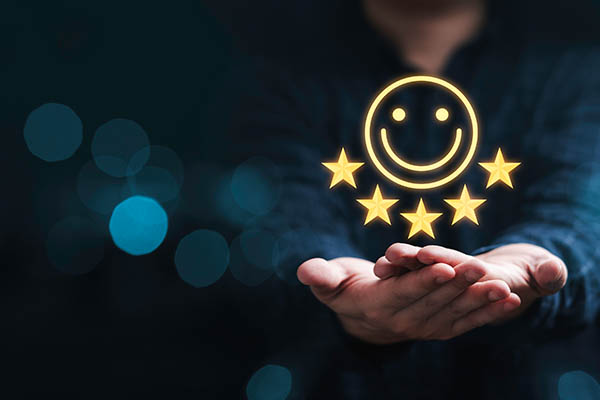
Adapting Your Brand: The client actually gets a much better experience as do media stakeholders, when we have other people involved with new fresh ideas, different approaches, and it still can end up in the success of a very product.
I don’t know who first said this phrase. It sounds a little violent, but I want to tell every reader. I want to drill it into their head, that’s the violent phrase, what you said. It’s not true that you are the only one that can do it all right. You may be great at it and entrepreneurs are amazing. Founders are amazing. They’re very capable and that’s allowed the business to grow to a certain point. At some level, that’s maxed out. That game is done.
The only way to go further is to help somebody else be great and take it forward. I love how you talked about ownership and giving people that sense of pride around, “I own this thing. Kristin doesn’t do it anymore. This is me.” That’s a key. I wouldn’t unnecessarily or unwisely tell everybody to run out and acquire another company. Both the lessons you started sharing with us came out of this acquisition that you did. It forced you to do things that maybe it would have been harder to do organically.
It escalated and the next big one was COVID. I do believe that COVID was the great accelerator. It made things that were going to happen to go much faster. The biggest one is evidenced by this enormously huge and I’ll send you the links. I think it was a McKinsey study that came out and it was called The Quickening. It came out in Q4 of 2020. It talked about the jump in online research engagement and conversion through COVID and how everybody expects that to stay because we ultimately had more than enough time to build a habit and a trusted experience around providers other than Amazon.
It became something that caused immense change in all of our businesses but also in the mindset of the consumers that we were serving. In addition to the big experience, we had during the recession in 2008 and then we did the acquisition. There have been a lot of things between that time up to 2020. However, I will say this was a year like no other in terms of forcing change, enforcing a different mindset and coming out of it with a different way to serve, frankly.
You hit something right on the head and that is the forcing function of a big disruptive event for us to do something that will maintain our relevance or for us to get left behind. Thankfully, I’ve seen a lot of business owners make the necessary shifts. You’re right. It’s fascinating how COVID did the change management work for all of us that our business would have to go do to get our target customers to behaving ways that would allow some of this digital transformation and it just happened.
Now, there’s no turning that back. This is the new way. Great insights from your own experience. Let’s go back, and maybe I can couch it as leadership lessons, to some of the leadership growth that you had to go through to continue to grow your business post $1 million in revenue because, as you said earlier, if you don’t change, the business doesn’t change. What are other changes you had to make besides delegating?
Believe it or not, we are foundationally storytellers and communicators. This is an ongoing process. It’s not like it’s one-and-done. That whole mission, vision and values and setting systems and processes has to be continually done. That’s another thing that’s been great about COVID. We all saw collectively how much it matters to consumers to have ethical alignments with their brands. That also goes for employees. There’s going to be a huge talent grab very soon.
When the business comes back online, the people who might have been furloughed or those who chose to maybe step back until they could step back and take an assessment, they’re going to want to work for companies that are aligned where they’re spending a lot of their time. It’s helping society or helping the environment or whatever it is.
We’re working on this now. I have to say, prior to COVID, we were exposed. We didn’t have a fresh mission, vision and value. It wasn’t more than two years old, but it’s something that needs to be revisited and positioned proactively outside of your company so that people can see the process and that it’s not always perfect. That’s important. Also, make sure that your team can act on the company’s behalf out in the wild.

Adapting Your Brand: It’s not always perfect, but it’s really important to make sure that your team can act on the company’s behalf out in the wild.
As you’re as you’re scaling in numbers, as the number of people goes up, the proximity to the source of truth, being next to you all the time or hearing you talk about those things, that proximity decreases. They’re further away from you as a team grows by necessity, but they’re out and in the wild, as you said on your behalf. How well are you creating the continuity of the story of your business inside and out?
I love talking to brand experts and brand professionals about this topic because what you do to help your clients out in the world tells a consistent, compelling story. That’s where I get all geeked out on and helping companies internally get their story right, the purpose, values and mission. When that gets all dialed in and it’s game-changing, brand and culture are two sides of the same coin in my mind.
When people feel like the company is creating positive change or the brand is creating positive change, that’s when things get special and we’re seeing that. Consumers are not seeing institutions solve their problems anymore. Let’s say it. They’re looking to brands to do that. They want to join a community of a brand. They want to have the brand be forcing change or creating change. No matter what side of the political spectrum they’re on, there’s a brand for them.
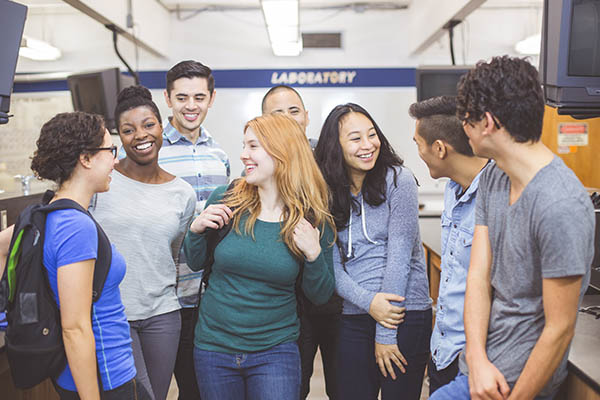
Adapting Your Brand: When people feel like the company is creating positive change or the brand is creating positive change, that’s when things get really special.
That’s where they’re joining up, but ultimately, there’s a lot of responsibility in that. Your people are representatives of that, so it is super important to have it all in lockstep in terms of what your internal company culture is and what your business stands for. We’re working on that again now. It’s timely, but let’s also connect on the fact that even prior to COVID, it was not at all surprising when you go to Lulu or Apple or any big website all have their vision and their ethics right there. That became even more important during COVID.
It’s interesting for the years I’ve done the work that I do to help people get clear on purpose, values and mission and take that vision and operationalize it. How do we turn that into reality and how we do our work together and all the rest? We used to talk all the time about how this isn’t an external document. This is an external face. The work that we’re doing here, this is our core and our foundation.
We’re not embarrassed by it. We’re happy to share it, but that’s not the purpose of it. The purpose is internal, but you’re right. Now, it’s seeing the best brands, that the divide between internal and external is getting smaller. It’s more transparent and it attracts great talent to work in the company. It also attracts raving fans who want to be part of what that brand stands for.
I’ve been thinking about your employees as your marketers. Social media nowadays have a significant reach.
Are they going to represent who you want to be represented as? That only happens by consistently beating the drum. I’ll use our language, our purpose, value and mission. Whatever language you want to use, it’s the idea of being purpose-driven or values-based. This is who we are. This is our identity and here’s what we’re out in the world doing. I believe it’s always been this but it’s becoming more apparent that your job as a leader is to be beating that drum, helping people see it clearly and like a heartbeat, it’s always going.
What do they say? We, as people, are consumers. That we have an attention span that is smaller than a goldfish, but through COVID and the congestion online, we used to say we had to show a brand touchpoint 8 to 11 times for them to feel like, “I’m seeing that everywhere. What is that?” I feel it’s more like 30 or 40 times now. I’m not even kidding. That repetition and beating the drum internally and externally from a communication standpoint. Even though it may feel heavy, trust me, it’s hard to reach people now. There’s a lot of noise online.
It's hard to reach people right now. There's a lot of noise online. Click To TweetIt would be fascinating to get into this discussion another time and another place, but there are a bunch of ramifications and implications because of all of us and our kids being so tied to screens. There’s a lot to that. Not only is it noisy when they’re on, but I see an effort to get people away and disconnect more intentionally, which is probably healthy, but it makes it harder for our companies and clients to get in front of people as well.
We have learned some great lessons from you. Are there any other things that stand out for you in your own growth as a seven-figure business owner? As you folks took on an acquisition and integrated that team, I’m sure you’ve learned some things around hiring and putting together a leadership team. Are there any other key lessons that you want to share with our readers?
I feel not having the brand be tied to the founder is key. We still struggle with that because of our podcast. During COVID, I did a lot of free panels and webinars within our industries on behalf of Verde, but that’s just what I do. It’s my role. We changed our leadership team structure to be more reflective of the company we want to be because I’m a big believer in be, do and have. You want to be where you want to be. Instead of have, do and be. You want to get everybody to act like we’re already there and this is the company we need to be.
Do you want to be where you want to be? Then, instead of having to be, you want to really get everybody to act like we're already there. Click To TweetThis is where we are now. We know that we’re charting a different path because what we do always changes, but through 2020, it changed precipitously. We’re trying to make sure that our leadership team is very reflective of where we have to put our focus to be on the front lines to help our clients. That’s essentially a new structure. That was a big operational change in the fourth quarter and now we’re doing mission, vision and values and getting this new management committee set up.
These people are flat organization leaders in and of themselves. They’re visible to everybody within and externally of the company. I feel like that’s going to supercharge where we’re going because it has to be about more than just me as a founder. That is for sure. They do a lot of things a lot better than I do. They bring different skills. It’s super fun for me as an entrepreneur because I’m learning all the time from them.
I see businesses all the time that they buy this beautiful little home. They go, “Now we need this room,” and they add on a room, then, “Now we need this,” and they add on a room. Pretty soon, the outcome is a fairly disjointed house. It may be big enough, but it doesn’t flow right and doesn’t meet everybody’s needs. Sometimes, we do that in a business where we grow and we add team members and the structure doesn’t optimally support where we’re trying to go. Having to revisit that and very intentionally match your structure to who you’re trying to be as a business is a great way to talk about that.
I would never have gotten there myself. I have an incredible team and operations leader who contributed so hugely to that.
Kristin, it’s been a fantastic pleasure for me to spend some time learning from you and talking with you. How would our readers learn more about Verde or connect with you on social? Where would they plug in to learn more and connect?
Thank you again for having me on the program and I’m so excited to see your show grow. Our company is at VerdePR.com and our podcast is ChannelMastery.com. That’s where you can find me there. Twitter and Instagram, I’m @KCCarpeDiem8 and LinkedIn is just Kristin Carpenter. That’s where I’m most active.
Thanks again, Kristin, for being on our show. To all of you readers, please keep reading. Bring your friends and tell them about us. We want to help as many seven-figure business owners as we can. We know it isn’t easy to make the transition from superhuman entrepreneur to capable business builder who is now leading a team and delegating, doing all the things that Kristin talked about. Come next episode, we’ll have new guests and new topics. Our aim is to help as many of you as possible grow to eight figures and beyond.
$8 million wouldn’t be bad.
It’s not bad, but $10 million and beyond is what we’re looking for. Thank you very much.
Thank you.
Important Links
- Verde PR
- The Quickening
- ChannelMastery.com – Podcast
- Twitter – Kristin Carpenter
- @KCCarpeDiem8 – Instagram
- Kristin Carpenter – LinkedIn
Want to listen to more? View all episodes here >

